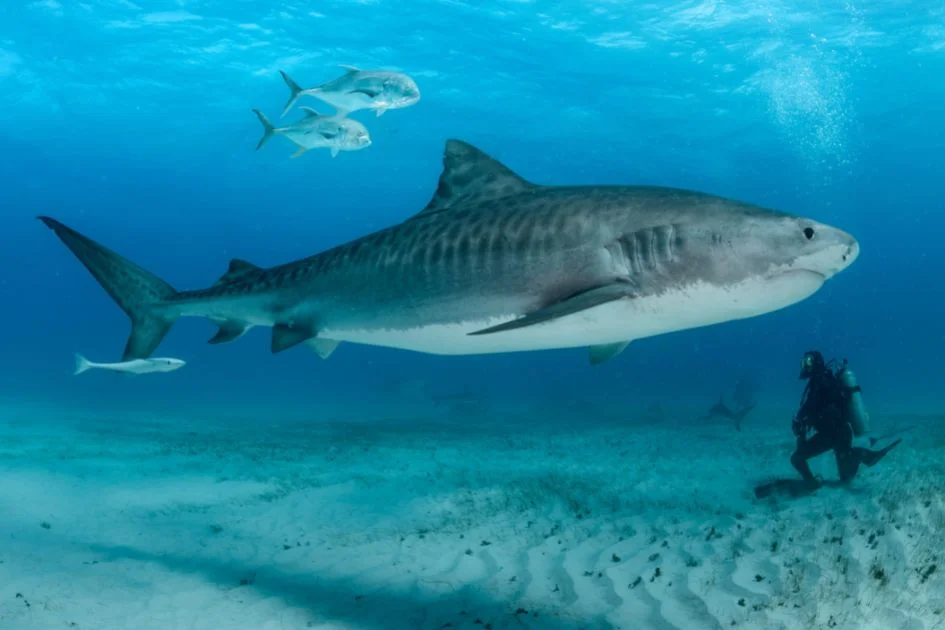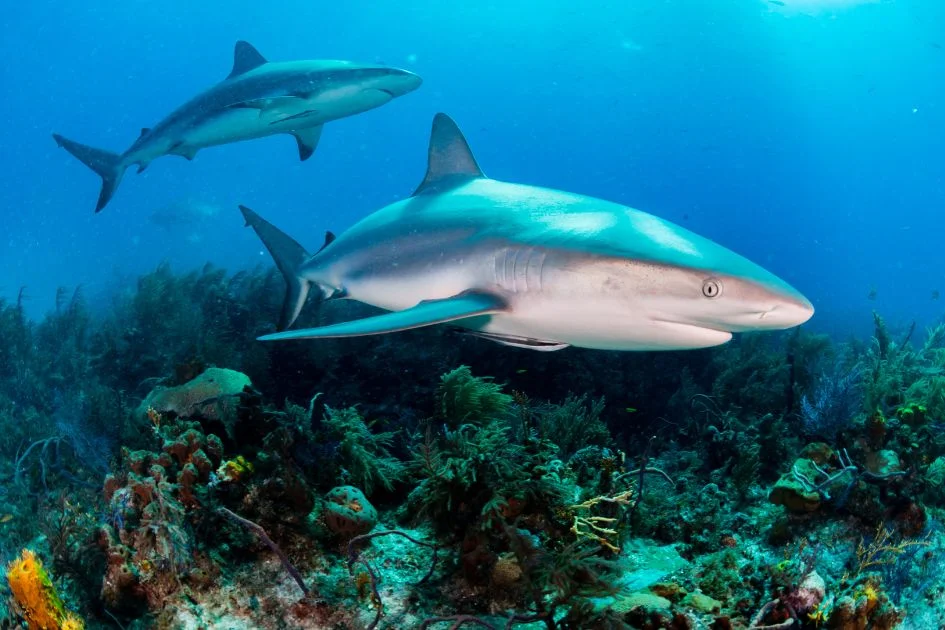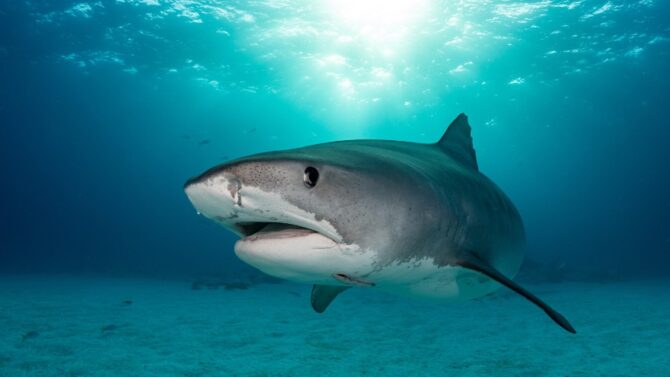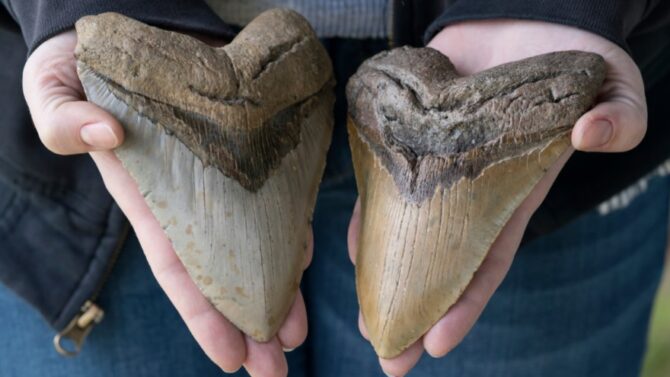Sharks have a notorious reputation as dangerous animals, and Hollywood has done a good job of enforcing that with movies like Jaws.
If someone wants to describe sharks, the words “serial killer,” “psychopath,” and “deadly” might first come to mind.
Shark pendants don’t make good gifts for Valentine’s Day.
However, maybe we should start altering our views. Hence, the question begs to be asked: Do sharks have emotions or feel affection?
This might be hard for many people to accept, but sharks do not always fit the cold-hearted killer box in which we’ve put them. Sharks have feelings too!
Sharks are capable of showing emotions, feelings, and affection. They can also think. They use their feelings and thoughts to make decisions, including where to live and what to eat.
This ability is also a good tool for researchers seeking to understand sharks and manage their populations.
Find out more in the following sections.
Do Sharks Have Emotions?

These big and bad terrors of the sea show emotions and feelings just as much as friendlier marine animals like dolphins.
Even more, sharks can suffer from stress and other psychological burdens. That’s a far cry from the image we have of them.
A study on fish proves that they have nociceptors that make them feel pain, leading the researchers to question the morality of fishing, especially with the commercial fishing methods used.1
A shark is a fish, so this stands as the first evidence.
Bradshaw, another animal researcher, did some specific studies on carnivores, including sharks.2
Her findings led her to conclude that “white sharks, coyotes, and wolves not only have comparable mental and emotional capacities as humans but are equally vulnerable to psychological trauma.
Another study showed differences in how sharks related to their environments and their willingness to explore.3
Some sharks seemed more curious and even braver than others in moving toward uncharted territory. This hinted at a difference in personality.
All of these show how sharks feel, and they even have different personalities. Who knew sharks and humans had some common ground?
Fishes, mammals, reptiles, and even invertebrates have similar brain structures, so they do feel the same way.
Can Sharks Cry?
Fishes can feel pain due to the nociceptors explained in the preceding section, but fishes don’t cry, including sharks.
There are generally two reasons sharks don’t cry, even when they feel enough pain that should cause tears.
The first reason is obvious. Fishes are aquatic animals and are already surrounded by water. Thus, there is no natural need for them to cry.
Humans stay on terrestrial grounds, and tears help lubricate the eyes, even when we’re not crying. (That explains why our eyes are often wet.)
The second reason is that they lack the organs that make humans cry.
Humans possess the cerebral cortex, lacrimal gland, and tear ducts, which all contribute to crying, but fish have none.
Therefore, though sharks can feel pain, they can’t cry.
Can Sharks Become Sad?
Although sharks can’t cry, they can become sad and even depressed when faced with some unnerving factors. Poor feeding is one reason a shark can become sad.
Sharks might also become sad when held in captivity, especially the white shark. It will express its depression by hitting the glass and even refusing to eat.
That shows in many ways that sharks can show feelings
Besides head butting and loss of appetite, sharks have other ways of expressing sadness. They may moan or isolate themselves from others in the group.
Though some researchers argue that sharks possibly don’t show sadness, other studies have shown that to be true.
Do Sharks Smile?

Animated movies show villainous sharks giving menacing smiles while pursuing a smaller fish, but does that happen in reality? Can a shark smile?
Animals can smile in reality. Dogs, dolphins, monkeys, and cats are some examples of facially expressive animals. Monkeys especially can look similar to humans.
However, sharks can’t smile because their brains aren’t developed to the level of producing a smile. The rigid jaws also make it impossible for sharks to smile.
They do communicate with bodily movements, just as other animals have methods of interacting with the environment.
But the general rule is that sharks can’t smile, though there might be some exceptions with certain species.
Can Sharks Show Affection?
Not many people are willing to get close to a shark for us to have numerous evidence that sharks can show affection, so there’s no total certainty.
However, there are some proofs that sharks can show affection.
An example is a video that was once made around a shark responding with affection to a diver when the latter saves its life.
Findings have also shown that sharks respond positively to affection, similar to how dogs and cats would.
According to Phyllis Trueluck (whose experience was recorded), sharks at her place of work would recognize her and move closer to display signs of affection.4
They also relax when marine aquariums stroke them, a positive response to affection.
Do Sharks Fall in Love?
At this point, you’d be expecting to hear of monogamous tendencies and even signs of an elaborate mating process like many other animals.
However, there is no strong evidence that sharks fall in love or stay monogamous.
On the contrary, sharks seem to tie no feeling to mating, nor does one sex try to attract the other before the process happens.
It is the equivalent of a one-night stand, so they don’t seem to fall in love.
Do Sharks Think?

Our stereotype of sharks does make us believe they’re mindless robotic killers, but sharks have a certain level of intelligence and have been proven to even make choices when feeding as dogs and cats do.
Sharks are strong predators, but they also select what they eat. Some might go for invertebrates, while others lean toward bigger animals like sea lions.
The ability to make such distinctions show a high level of intelligence.
Related Questions
Can sharks bond?
For a long time, experts believed that sharks are loners. However, some species have proven that sharks can bond with themselves.
Do sharks make good pets?
It is possible to keep a shark as a pet, but you should know what is involved before making a decision.
You should have the right aquarium, experience, and legal permits. Some species, like the white shark, are also illegal to have as pets.
Are sharks emotionless?
The shark’s brain is developed enough to show feelings, so yes, sharks do show emotions. They can be sad, stressed, or happy.
Do sharks get annoyed?
From various findings and research, one can conclude that sharks get angry. However, they express it differently than humans.
Are sharks friendly?
While sharks may not relate with humans the way domesticated animals like dogs do, many shark species are harmless and would rather hunt an animal as prey.
Wrap Up
You can’t judge a book by its cover! So, do sharks feel emotions? Yes!
Sharks have more hearts than we assume, and they feel a lot more emotions than blind rage.
However, this doesn’t mean you should become instant buddies with one.
While you should drop the myth of sharks being cold killers, they are still wild and should sometimes be left to thrive that way.
Check out these interesting articles:
References & Notes
Facts Sources:
- Fish Have Feelings, Too. Shark Research Institute.
- The Mind of the Predator. Scientific American.
- Individual personality differences in Port Jackson sharks Heterodontus portusjacksoni. Journal of Fish Biology.
- Sharks also thrive on affection. Christian Science Monitor.






